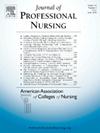从护理学士学位课程中正式的同伴指导计划中学到的经验教训
IF 2.9
3区 医学
Q1 NURSING
引用次数: 0
摘要
在护理专业中,正式的指导被认为是教授批判性思维、领导技能、沟通和专业社会化的有效方法。不幸的是,很少有护理学士学位课程教授指导的具体技能,无论是作为正式课程中的学员还是导师。方法基于Benner(1984)的“从新手到专家”理论,在2019冠状病毒病大流行期间制定了一项由高年级学生指导大二学生的同伴指导计划。在整个过程中,根据确定的经验教训对程序进行了改进。结果对初始方案进行评估后,所有护生回归到亲身临床体验,并采用Tanner(2006)的临床判断模型;正式的同伴指导计划发生了实质性的变化。结论师徒关系在专业护理实践中的重要性在正式的师徒关系项目中得到了体现。明确的期望对学生和教师都是必要的。学生应该接受有关师徒关系的教育。课程学分与分级形成性和总结性作业强化了指导的重要性。本文章由计算机程序翻译,如有差异,请以英文原文为准。
Lessons learned from a formalized peer mentoring program in a baccalaureate nursing curriculum
Background
Formal mentoring within the nursing profession has been recognized as an effective approach in teaching critical thinking, leadership skills, communication, and professional socialization. Unfortunately, few baccalaureate nursing programs teach skills specific to mentoring, both as mentees and mentors within a formalized program.
Methods
A peer mentoring program with senior students mentoring sophomore students was developed based on Benner's (1984) novice-to-expert theory during the COVID-19 pandemic. Refinements to the program were made with identified lessons learned throughout the process.
Results
Following evaluation of the initial program, return to in-person clinical experiences for all nursing students, and adoption of Tanner's (2006) clinical judgment model; substantial changes were made to the formalized peer mentoring program.
Conclusion
The formal mentoring program has benefited sophomores and seniors by recognizing the importance of mentoring relationships in professional nursing practice.
Clear expectations are necessary for students and faculty. Students should receive education about mentoring relationships. Course credit with graded formative and summative assignments reinforces the importance of mentoring.
求助全文
通过发布文献求助,成功后即可免费获取论文全文。
去求助
来源期刊
CiteScore
4.80
自引率
8.00%
发文量
153
审稿时长
52 days
期刊介绍:
The Journal will accept articles that focus on baccalaureate and higher degree nursing education, educational research, policy related to education, and education and practice partnerships. Reports of original work, research, reviews, insightful descriptions, and policy papers focusing on baccalaureate and graduate nursing education will be published.

 求助内容:
求助内容: 应助结果提醒方式:
应助结果提醒方式:


